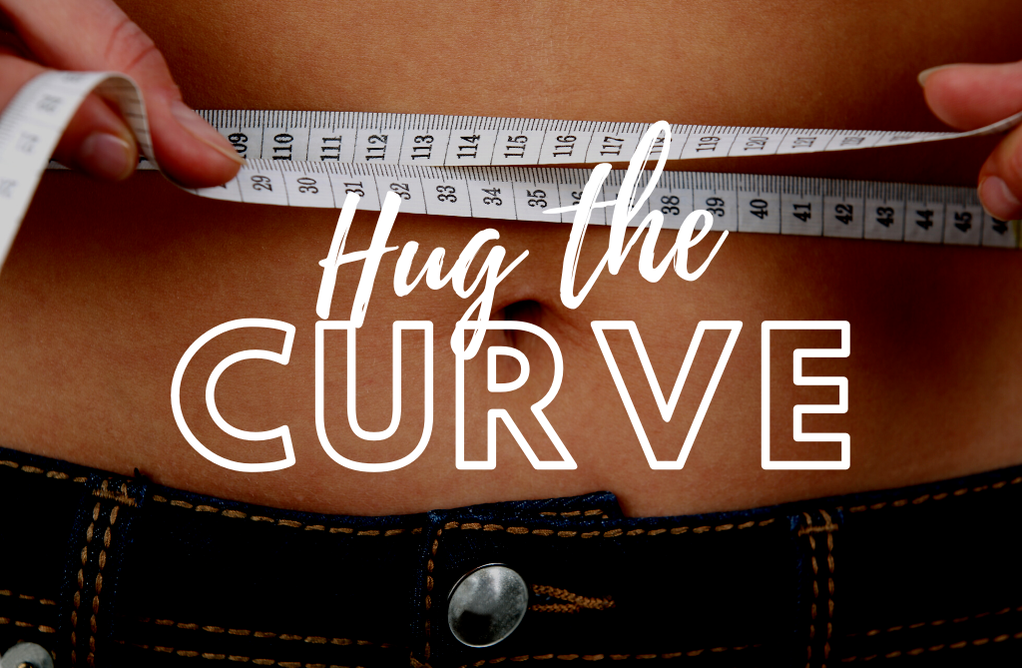|
Think we’ve beaten the mansplaining horse into the ground? Perhaps we have, but allow me to revive it, take it for a walk, and then shoot it in the head.
Why? Because, there are several problems with mansplaining that are not obvious. But let’s get the obvious out of the way, lest someone think I’m all for an uplifting session of being talked to like I need a little carton of milk and a nap. There are two components of the mansplain dynamic that are commonly at issue. These are where we get to beat that dead horse. Yee-ha! First, the explaining of something that you, as a grown person who can self-dress (including tying shoes) should already know. I usually deal with this by employing the simple head-shake. At times, I’ll go as far as the proprietary eyebrow raise. No verbal responses here. I’m not interested in giving these moments any more oxygen that they deserve. This dynamic is at its worst when a man is explaining something specific to being a woman. No please, explain exactly how you expressed milk and saved it for those moments when you just couldn’t breastfeed. But go slowly. And, of course, the truly irksome component of mansplaining which includes the “take-over.” It often goes something like this: “Have you tried…” “Yes.” “Well, have you tried…” “Yes.” “What about…” “Yes.” “Slide over. Let me do it.” Side Note: The take-over may also occur when in the company of both a cell phone and an individual under the age of 25. Now that we’ve acknowledged the obvious, let’s take that horse for a walk. One of the overlooked problems with mansplaining is guys are just being guys. As women (yes, I’m now speaking for us all—don’t worry, I have a permit), we are usually only keyed into mansplaining when it happens to us. So, it seems like something men do only to us to somehow bring us down a peg, or to reveal how badly they think we need a helmet while walking outside unaccompanied. Oh, no. The fact is (and it is a fact): Guys also mansplain to each other. Men like knowing things, having a tidbit to share, and solving a problem. It is central to their being. (Now I’m generalizing “all men.” Fear not. I got that permit as well.) You just need to watch men in one of their natural habitats—say, standing around a lit barbecue grill. Listen to the conversation. It will be full of tidbit sharing and problem solving. Next, observe how happy they are to be doing it. An example of guy-on-guy tidbit sharing may go like this: “Did you know that vegetables in the supermarket are shiny because they’re rubbed with a wax product that’s derived from corn?” “Did you know that 78% of the corn grown in America is feed corn?” “It’s 79%, and 86% of the items in the supermarket contain corn in some form.” Side Note: Around the grill, percentages score big even if they’re lies. Each morning at home, I’m gifted with some new tidbit. Mr. Parker typically wakes up well before I do. And to the best of my knowledge, a portion of that time is filled with fact finding. Because he’s a food guy, I often get served my coffee with some obscure food fact on the side. In my pre-caffeinated state, these facts can be semi-interesting—or something I can barely grasp. Just the other day, I learned that the product Fabreeze started making money only after they added a scent to the product. Seems that when Fabreze didn’t actually smell like anything, no one could tell it was actually working. Fascinating! Or not really. Either way, it makes him happy to learn new things, and what’s the fun of obscure knowledge if you can’t share it? See also: the inevitably infuriating Trivia Night at your local dive bar. Side Note: When Mr. Parker was reading a book entitled simply, Cod I got the daily skinny on the history of the global cod-fishing industry. (Please don’t quiz me.) Men will also attempt to problem-solve for each other. I say “attempt” because, based on my observations (hey—this screed just became like an episode of Wild Kingdom), each guy has a different and better way of solving the problem—a way that needs to be shared lest the crowd forever be “doing it wrong.” We once had a dear friend, the brilliant, generous, and highly critical Steve Jones, whose catch phrase was, “You’re doing it wrong.” Steve left us way too soon, but not before delighting in being that tiny grain of sand in your life that irritated you and everyone else around him with his mansplaining (or Steve-splaining) until each of us made our very own rare, and valuable pearl. Now, on to beating the last remaining part of the horse. (I’m starting to hate this metaphor.) Ready? I’m just so over the word “mansplaining.” For pearl-like clarity, know that I didn’t hate it the first time I heard it. In the beginning, it rang with the clarion call of a truth bell. “Mansplaining. Yep, I’ve felt that.” It was nice to have the entire repellent act crystallized into a universally understood single word—one word that said I wasn’t alone in identifying the behavior or feeling a certain way about it. It’s like when you realize you’re not the only one who’s ever considered eating something out of the trash. Disgusting, sure. But I’m not alone. (Right?) However, like so many words or phrases o’ the day, “mansplaining” went from “Ah-ha!” to “Please-no!” in wildly overused, idiotic word fashion. Like “Off-the-hook,” “Lit,” “Karen,” or “Wine-thirty,” it went from effective to feeble in a blithering second. It became so overused, it now makes the user sound incapable of original thought. To my mind, that takes the obvious issue of mansplaining, i.e. “You think I need a man’s help to function,” and de-plusses it (see also: negates it) by making it say, “And now, in addition to your unhelpful help, I also need to limp in on a stupid word-crutch to tell you how you’re making me feel.” And that puts She Who Shall Utter The Word into a position of weakness. Bizarrely, it is another way for us women to give away our authority. Chew on that for a hot minute while you quickly shed some of your “girl power.” Side Note: Hot minute = word fashion. Girl power = demeaning word fashion. OK. I lied. Here now, one last issue. I promise. Then we can let this beaten horse die in peace. Saying “mansplaining” to a mansplainer is tactical idiocy. If you go by the rule (and you should) that you need to always consider your desired result before speaking, you have to realize that by telling a guy he’s mansplaining, you will accomplish only one thing: making him a defensive mainsplainer. So, what is a better way to tell a guy that he’s being THAT guy? Well, that is one of the deep secrets of the universe and you’ll have to pay me if you want the answer. (I take Venmo. Click here.) So, all this is to say what? That we are, each one of us, trapped in the human condition. Word-crutches generally. Mansplaining specifically. Stop it! If you can. Or else keep it up and enjoy that misplaced righteous indignation. Cheers and stay careful-ish, Honey Parker
0 Comments
I’m just going to come out and say it. Since when does curvy mean fat?
Seriously. I did not get the memo. Why am I bringing this up now? I recently finished writing the third book in the Careful-ish series (thank you), and sent it to my editor. When he questioned one character’s physical appearance, I was taken aback. He assumed that Carmen was overweight. I asked why he thought that, and he said it was because I had described her as curvy. What? Doesn’t curvy mean someone with curves? An ample bust, a smaller waist, nice hips…curves? So, I argued with him. Not being one to let things go, he needed to prove his point. That’s his job. I, of course, was waiting for him to be proven wrong. But no. If you Google “curvy,” you’re flooded with images of plus size women. This can’t be. So, I went to the dictionary. “Curvy – (Of a woman's figure) shapely and voluptuous.” See! But then I went to the Urban Dictionary which says, “Despite popular belief, curvy does not mean fat. Curvy is an hour-glass figure; large breasts, hips, and with a comparatively small waist.” Popular belief? Why is that belief popular? My impression is that too many people walking the Earth feel that any departure from a stick figure is fat, unwelcome, not desirable, not worthy of being desired. Depressing. But there is hope. I recently moved to the American deep south. And I am pleased to say that things here are a bit different in regard to framing the curvy debate. I was invited to someone’s pool. When I said that I wasn’t feeling particularly bathing suit-ish after New Year’s Eve, she said, “Oh come on. I’m fluffier than you.” Fluffy. I love fluffy. All of a sudden, having a shape other than a straight line was a warm fuzzy. Playful. Dare I say, desirable? So, what is the take away? I’d like to reclaim the word “curvy.” To embrace it. Because curves are worth embracing. No matter how large or small, curves are visually interesting, can be exciting, and are worthy of being embraced. Curvy is not a size. It can be thin, ample, large and beyond. Curvy is shapely. So, if—excuse me, when you read Daughter of Careful-ish or the forthcoming Bride of Careful-ish, please know that Carmen is a beautiful, curvy Latina. And you’d be crazy not to be attracted to her. Cheers, Honey |
AuthorHoney Parker has been writing, writing, writing for decades, decades, decades. In there, she has also been a standup comedian, a Hollywood screenwriter, a director, and a co-author of edgy business books. Careful-ish is her debut novel. It is the first in a trilogy. It is comedy-ish. Archives
July 2024
Categories
All
|
Join that mailing list! |
|
Follow on Facebook
|



 RSS Feed
RSS Feed



